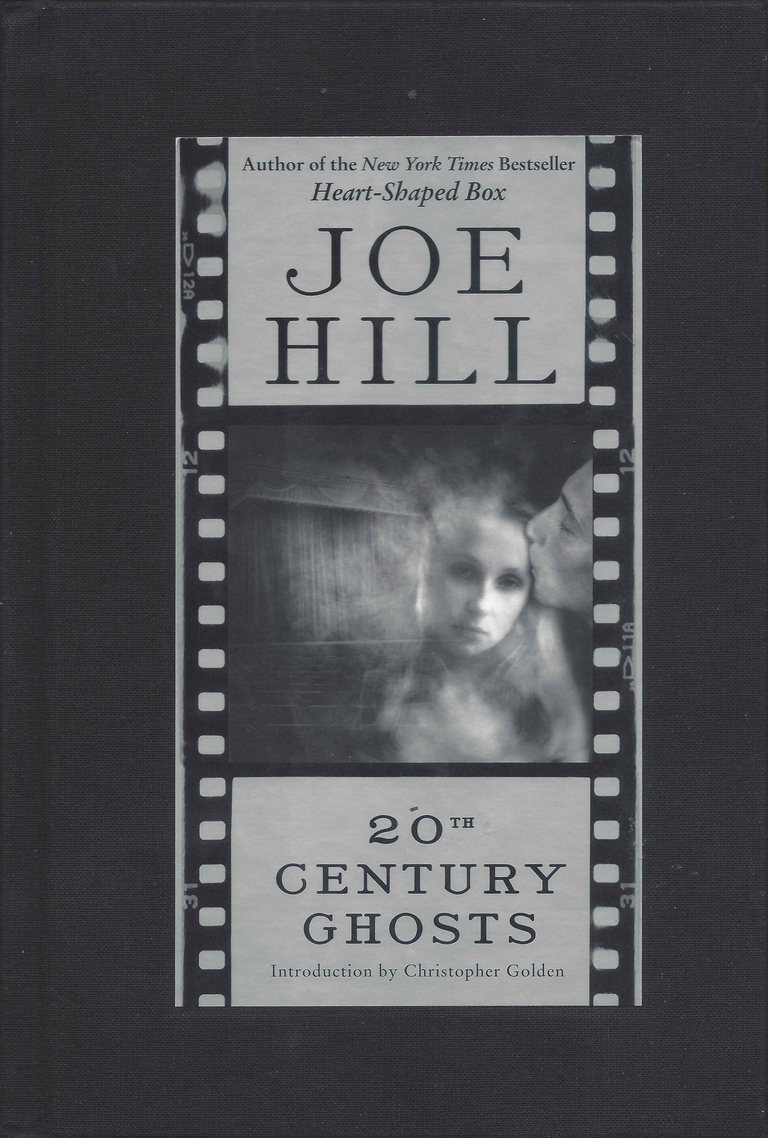In this, the first short story collection by Joe Hill, both horror and beauty alike abound in fourteen fascinating tales...

This is a collection of short stories written by author Joe Hill and first published in 2005. Joe Hill is, in fact, a pseudonym for Joe Hillstrom King, son of Stephen King. He chose to write under a pseudonym out of a desire to succeed on his own merits, rather than as a son of Stephen King, who is, of course, one of the world's best-selling and well-known authors.
This copy of the book does not include "The Saved," "The Black Phone: The Missing Chapter," or the author's Story Notes, which were present in the U.K. slipcased edition.

So if I say that 20th Century Ghosts is good, I say so from a standpoint of someone who doesn't really know enough or has read or watched enough of horror to be able to say, from an informed standpoint, that it's good.
Harlan Ellison once said in response to a fan letter, "You're only entitled to an informed opinion." Well, I don't have the information to be entitled to an informed opinion. I'm allowed to have an opinion, but I am hardly entitled to it and many others have more information and therefore their opinions should probably be trusted before my own.
I will say, though, that a whole lot of people with informed opinions seem to agree that 20th Century Ghosts is good.
Not everything in this collection is horror - some come closer to fantasy, while others are content to explore an interesting idea. Indeed, a few of these stories, you could call "literary," whatever that means. (I prefer the term general fiction as a way of distinguishing from "genre.") If elements of the fantastic (which is to say, elements that do not come out of reality but out of fantasy or science-fiction or horror) are not needed for a story, Hill does not add them in. This brand of restraint alone marks him out as a writer a step above your average, run-of-the-mill mediocrity.
More worthy is that each story is a fascinating read. I can't say I was fully sold on every single story. A collection in which you love every story shows either a writer of extreme talent or a reader of extreme apathy - a reader who is not very good at reading, who sits and absorbs without ever once mustering a genuine thought about the text.
Criticizing a collection of short stories on the basis that you didn't like each one is like criticizing, say, pizza because you don't like all the toppings. You don't have to like all the toppings, you can pick and choose. Likewise, you can pick and choose the short stories. They're all there to be read if you want to, but you're not required to.
That said, I enjoyed most of them - they're all intelligent and based out of unique premises. My favorites were those with the most interesting ideas: "Dead-Wood" and ghost trees (barely two pages, but how badly I wish I'd come up with the idea myself!), "Last Breath" about one man's museum of last breaths. "Better Than Home" is not horror at all (though after all the stories coming before you'd be forgiven for thinking that every turn would lead you in that direction) but in fact is rather sweet and beautiful.
"Pop Art" is at once weird and heartfelt, a coming-of-age through the friendship of two boys, one of whom is inflatable. That idea, though, is not really the focus of the story - but its consequences show in every turn, especially in the ending. "My Father's Mask" is utterly bizarre.
Coming off as a curious mixture of Kafka as seen through the lens of a 50s monster movie (or, possibly, the other way around), "You Will Hear the Locust Sing" tells the tale of a boy who turns into an enormous bug. "Abraham's Boys" draws out of Dracula after the Van Helsings have immigrated to America and goes from there.
"Voluntary Committal" is by turns strange and horrifying and beautiful and it is well worth a read. "20th Century Ghost" is another story for more beautiful than scary, its heart rooted in aging and in the film theatre.
I wish I could say more but I wouldn't want to spoil it for you. Suffice to say these are accomplished short stories. I wonder, now, how much my enjoyment might be benefited by reading Hill's father Stephen King's short stories, or just more horror in general.

Especially valuable is the intelligence of the stories - there is nothing here that is flat, nothing here that is passive. Every story, however long or short, has something to to think about.
I have imparted the existence of Richard Laymon to another? My life is now complete! :D